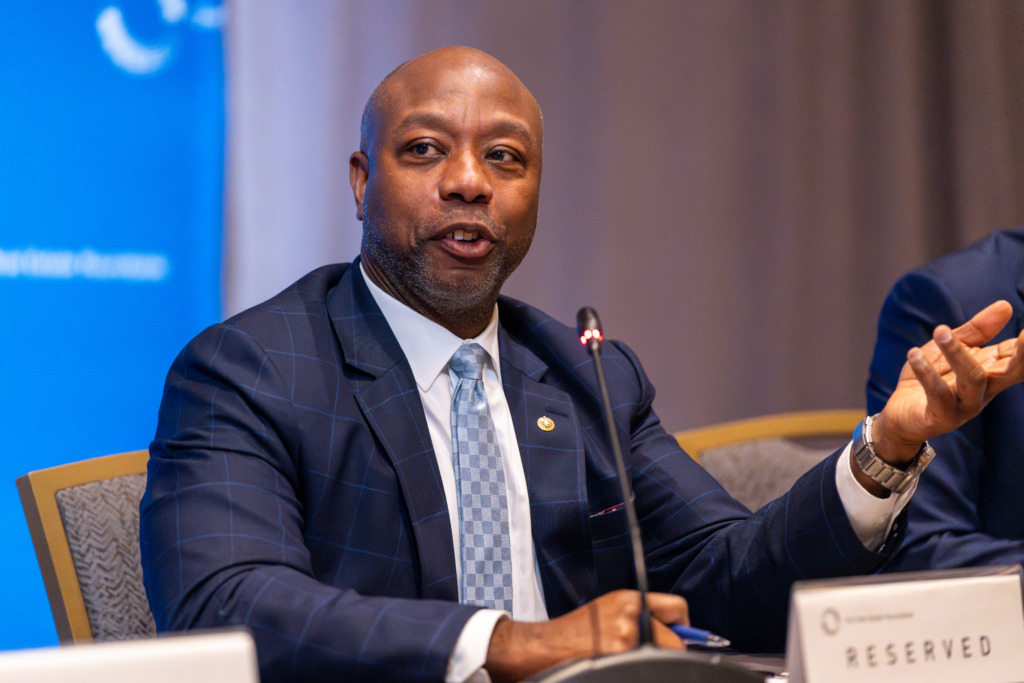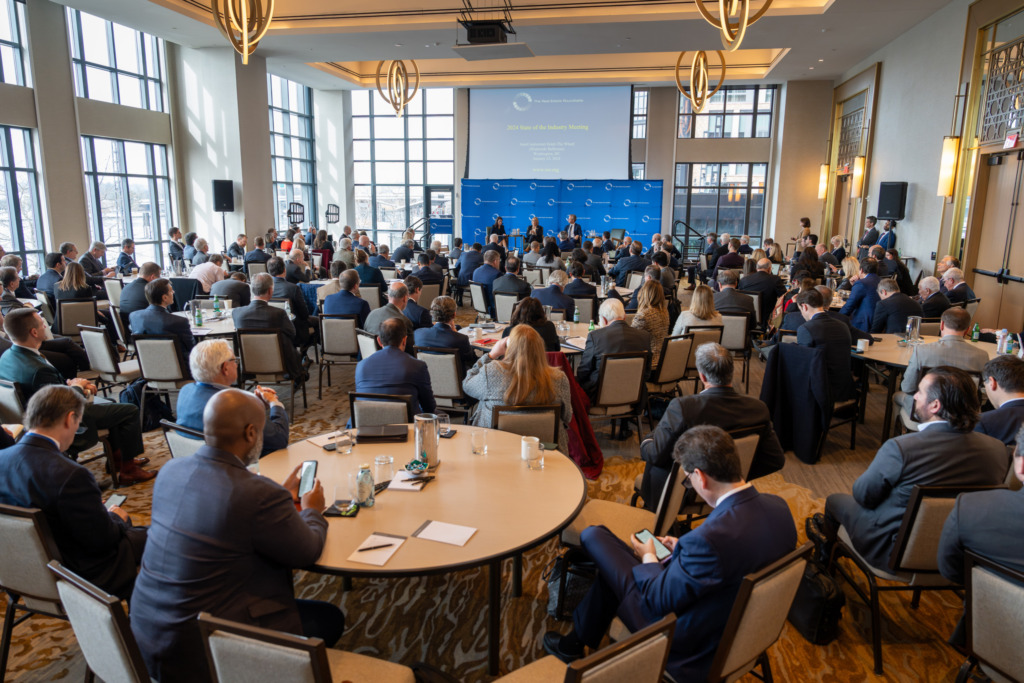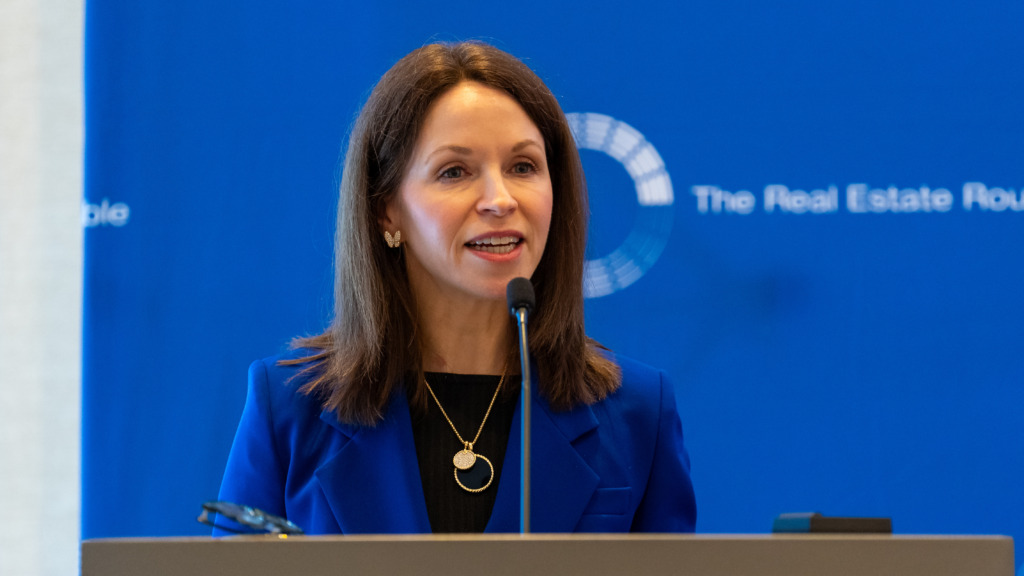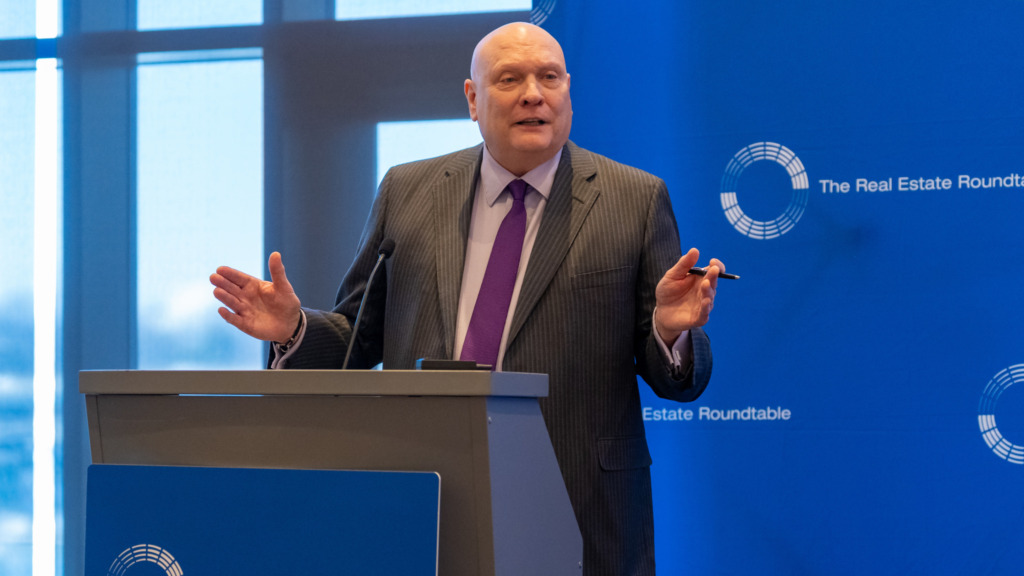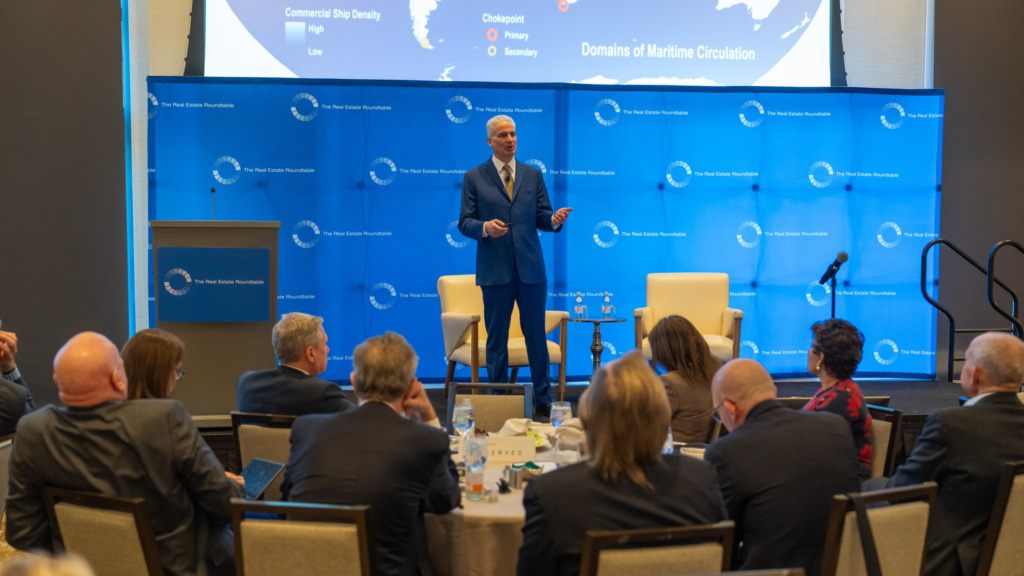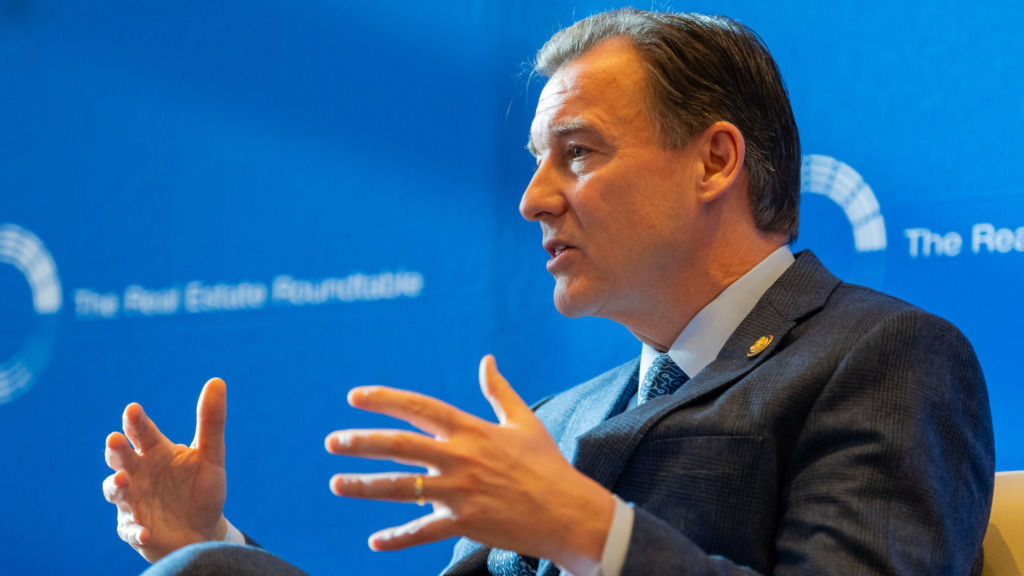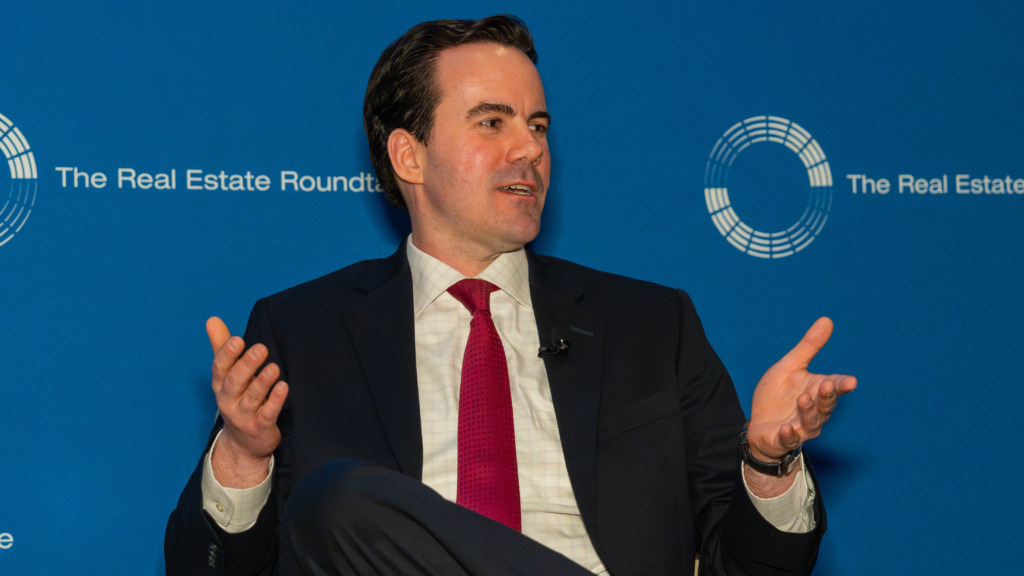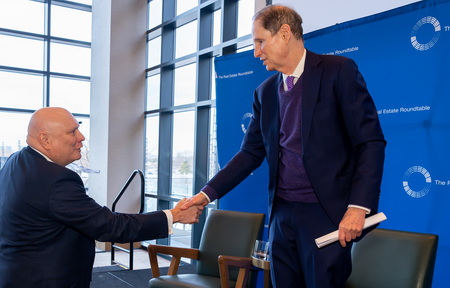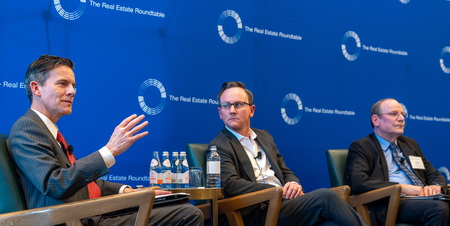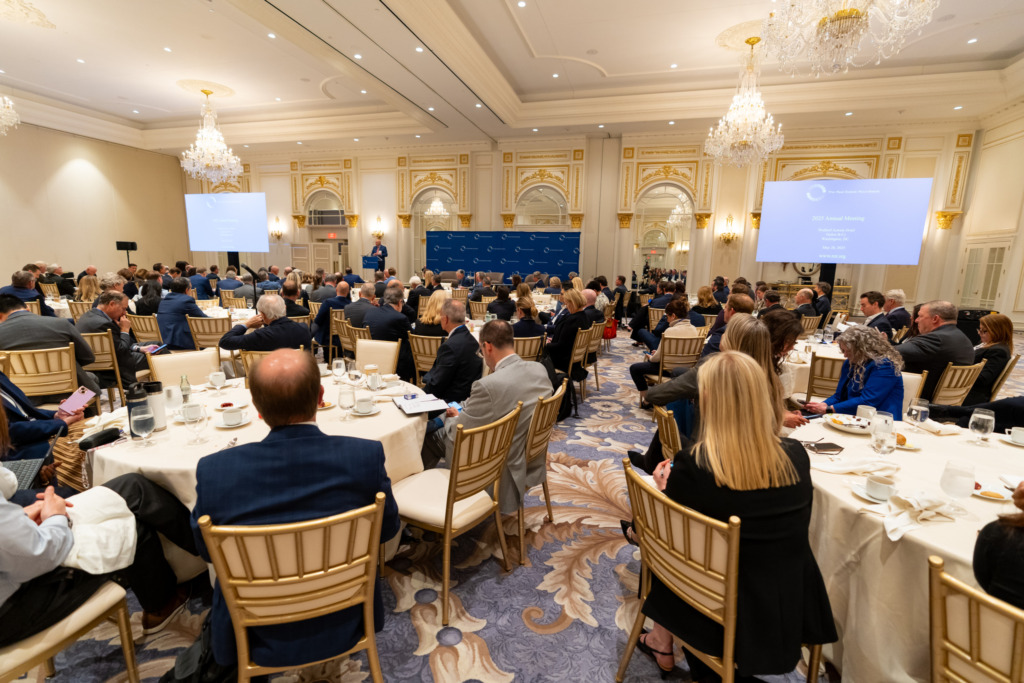
The Real Estate Roundtable’s (RER) 2025 Annual Meeting this week included discussions with public officials and industry leaders on a range of issues affecting commercial real estate, including market conditions, tax policy, the House’s recent passage of the One Big Beautiful Bill Act, tariffs and trade, affordable housing solutions, energy policy, and evolving security threats.
Roundtable Leadership

- RER Chair Kathleen McCarthy (Global Co-Head of Blackstone Real Estate, Blackstone) opened the meeting by thanking members for their consistent engagement and highlighting the significance of RER’s collaborative efforts in navigating a rapidly evolving policy landscape. (May 2025 Policy Priorities and Executive Summary)
- During the meeting, RER members approved the nominees for its FY26 board of directors and policy advisory committee officers, which were announced by RER Nominating Committee Chair Geordy Johnson (CEO, The Johnson Group).
- Addressing the membership, RER President and CEO Jeffrey DeBoer emphasized RER’s ongoing commitment to enhancing member involvement through RER’s policy advisory committees and underscored the value of strategic partnerships with other national real estate organizations for proactive policy advocacy. (Meeting Agenda)
Meeting Speakers

- The Honorable Kevin Hassett (Director, National Economic Council) presented the administration’s economic agenda, focusing on housing initiatives, factory expensing, and the outlook for growth.
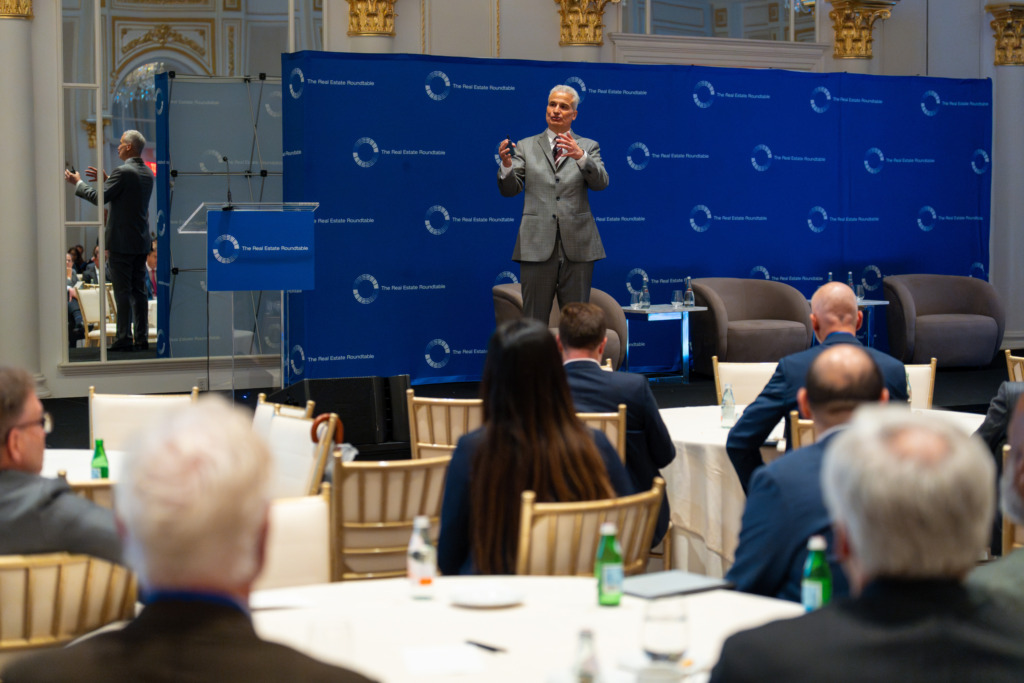
- Geopolitical expert John Sitilides (Principal, Trilogy Advisors LLC; National Security Senior Fellow, Foreign Policy Research Institute) gave a presentation titled “Washington & the World: The New Geopolitics of Great Power Competition.” During the session, he discussed the geopolitical implications of tariffs, NATO relations, and strategic U.S. interests, including maritime security.

- (L-R): Hessam Nadji (President and CEO, Marcus & Millichap), Martha Gimble (Executive Director, The Budget Lab at Yale University), and Jonathan Pollack (President, Starwood Capital Group) provided macroeconomic insights, reviewed current and future CRE market trends, and spoke about challenges amidst tariff-induced uncertainty. (Hessam Nadji Presentation | Martha Gimble Presentation)
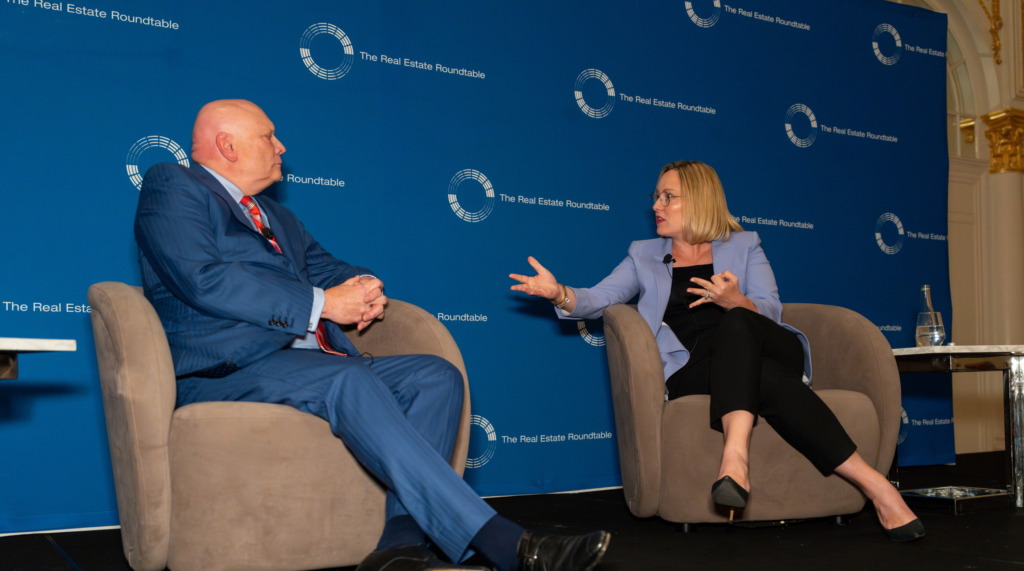
- Anna Palmer (Founder & CEO of Punchbowl News) offered her perspective on legislative developments and negotiations, and the rise of influential figures within both political parties.
Policy Advisory Committee Meetings
- Each of RER’s policy advisory committees met this week in conjunction with the Annual Meeting for in-depth policy discussions. The committees hosted several congressional staff and regulatory officials.
Sustainability Policy Advisory Committee (SPAC) Meeting
- SPAC Chair Anthony E. Malkin (Chairman and CEO, Empire State Realty Trust, Inc.), Co-Vice Chairs Ben Myers (Vice President, Sustainability, BXP) and Katie Rothenberg (Vice President, ESG, AvalonBay Communities, Inc.) led discussions on EPA’s ENERGY STAR program, grid reliability, clean energy procurement, and nuclear energy deployment. (Agenda & Speakers)
Tax Policy Advisory Committee (TPAC)
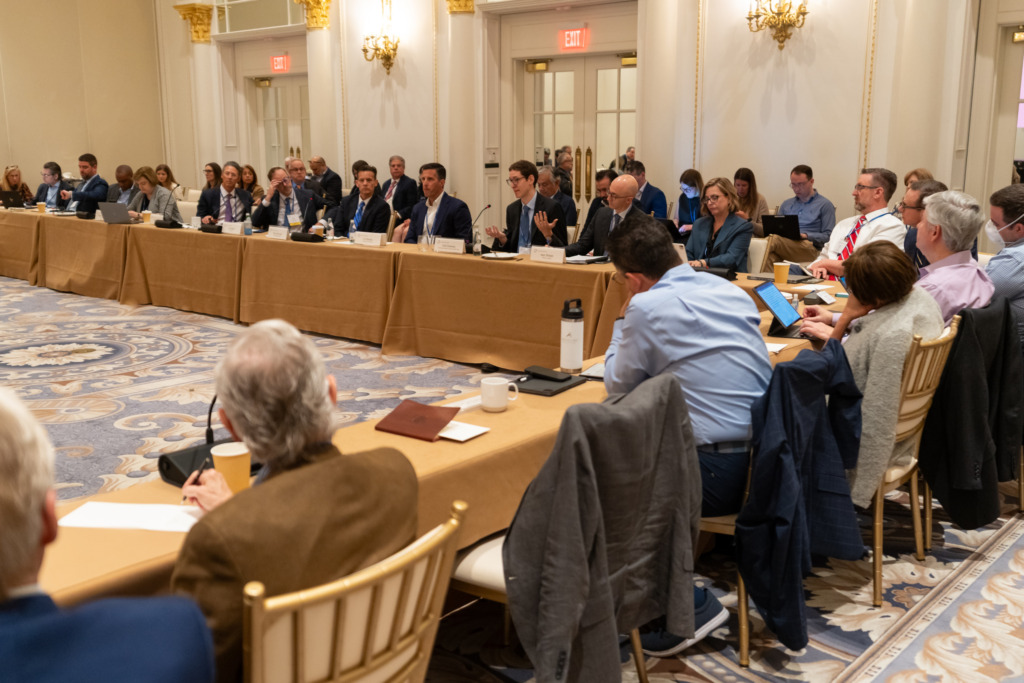
- TPAC Chair Josh Parker (Chairman & CEO, Ancora Group Capital), Vice Chair David Friedline (Partner, Deloitte Tax LLP), and the Committee discussed the broad range of tax proposals affecting real estate that are working their way through Congress in the budget reconciliation bill. Panelists included senior staff from the offices of the House Speaker, Ways and Means Committee, Senator Tim Scott (R-SC), and Senator Todd Young (R-IN), as well as the Treasury Department. In addition, tax experts from Baker McKenzie, Sullivan & Cromwell, and Brownstein led or moderated discussions concerning potential new taxes on foreign investors, regulatory initiatives, and Opportunity Zones. (Agenda & Speakers)
Sustainability Policy Advisory Committee (SPAC)
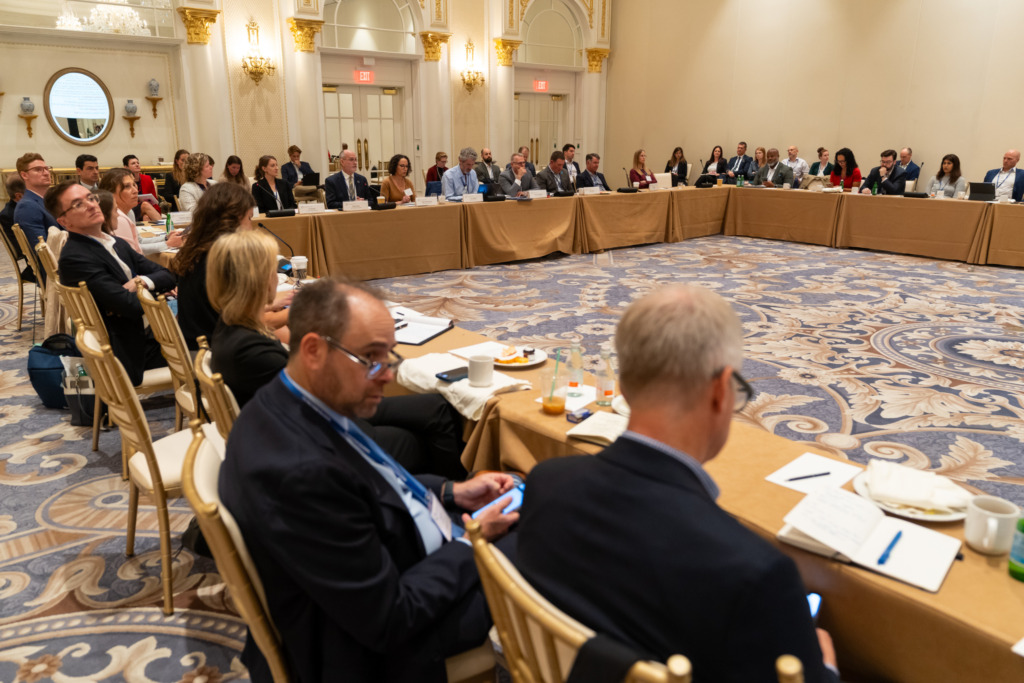
- SPAC Chair Anthony E. Malkin (Chairman and CEO, Empire State Realty Trust, Inc.) and Vice Chairs Ben Myers (Vice President, Sustainability, BXP) and Katie Rothenberg (VP, ESG, AvalonBay Communities, Inc.) led discussions on (Agenda & Speakers)
Joint Real Estate Capital Policy Advisory Committee (RECPAC) and Research Committee Meeting
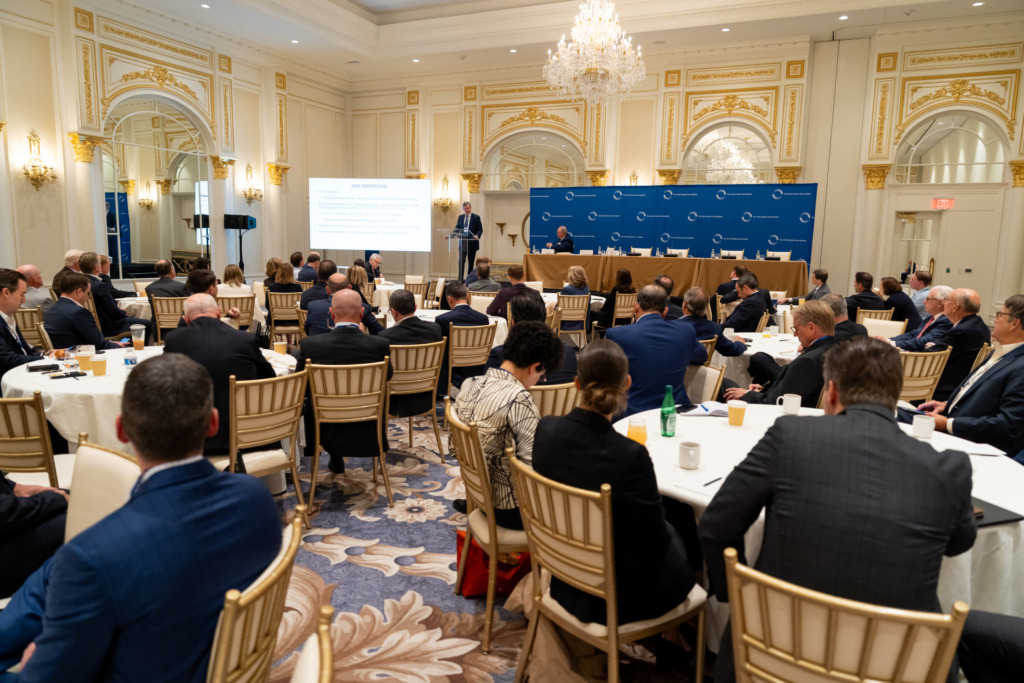
- D. Michael Van Konynenburg (President, Eastdil Secured) provided an overview of conditions in real estate credit and capital markets.
- Following a national policy update from RER’S Ryan McCormick (SVP & Counsel, RER) and Chip Rodgers (SVP, RER), Research Committee Chair Spencer Levy (Global Chief Client Officer & Senior Economic Advisor, CBRE) and Darin Mellot (Vice President of Capital Markets Research, CBRE) led a discussion on the evolving post Liberation Day impact of tariffs on commercial real estate markets.
- Robert Rubano (Executive Vice Chairman, Head of Equity, Debt, & Structured Finance, Cushman & Wakefield) moderated a capital market roundtable with David Bouton (Co-Head of U.S. CMBS, Citigroup), Jack Gay (Senior Managing Director, Global Head of Real Estate Debt, Nuveen Real Estate), Kathryn Ogden, (Head U.S. Corporate Banking and Global Head, Real Estate Capital Partners (RECP), RBC Capital Markets), and Matt Salem (Partner, Head of RE Credit, KKR). (Agenda & Speakers)
Homeland Security Task Force (HSTF) Meeting
- HSTF Chair Amanda S. Mason (Executive Director, Global Intelligence, Related Companies) facilitated a number of discussions on the current threat picture. These discussions included a review of the risks to commercial facilities from lithium-ion batteries with John Frank (AXA XL Risk Consulting). The meeting also included a series of briefs from the FBI regarding the threats from terrorist and transnational criminal organizations that are directly threatening U.S. citizens and commercial facilities. These discussions included updates on the role of the cartels in violent crime, the deaths of American citizens from synthetic opioids, and the facilitation of nearly three million illegal migrant arrivals in 2024, putting U.S. communities at risk. Also addressed were the range of cyber and intelligence threats from China, targeting our critical infrastructure. (Agenda & Speakers)
RER’s 2025 Annual Report will be distributed in July. Next on RER’s FY 2025 meeting calendar is the Fall Meeting, which will take place on October 27-28 (restricted to Roundtable-level members only).
